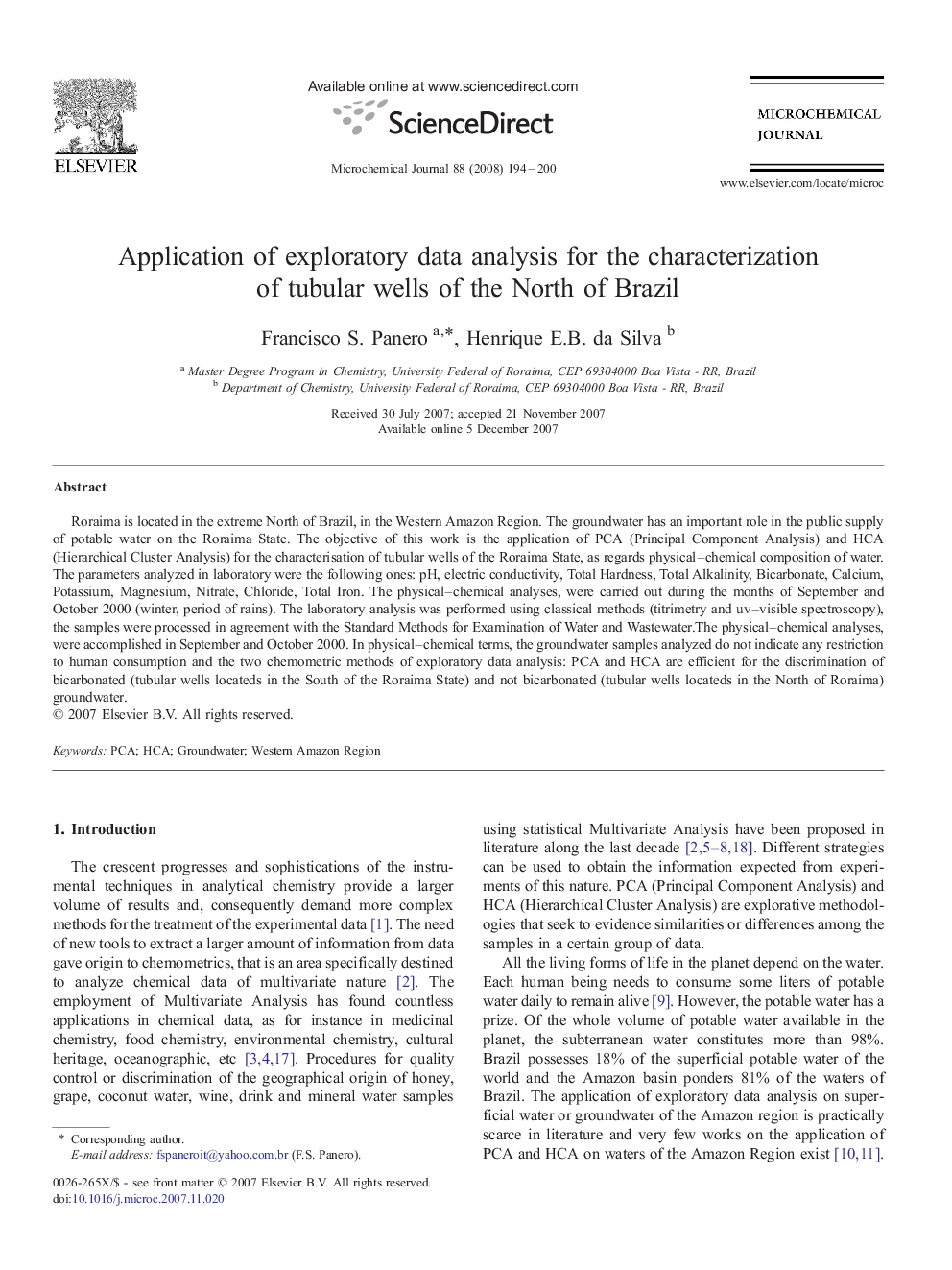| Article ID | Journal | Published Year | Pages | File Type |
|---|---|---|---|---|
| 1228287 | Microchemical Journal | 2008 | 7 Pages |
Roraima is located in the extreme North of Brazil, in the Western Amazon Region. The groundwater has an important role in the public supply of potable water on the Roraima State. The objective of this work is the application of PCA (Principal Component Analysis) and HCA (Hierarchical Cluster Analysis) for the characterisation of tubular wells of the Roraima State, as regards physical–chemical composition of water. The parameters analyzed in laboratory were the following ones: pH, electric conductivity, Total Hardness, Total Alkalinity, Bicarbonate, Calcium, Potassium, Magnesium, Nitrate, Chloride, Total Iron. The physical–chemical analyses, were carried out during the months of September and October 2000 (winter, period of rains). The laboratory analysis was performed using classical methods (titrimetry and uv–visible spectroscopy), the samples were processed in agreement with the Standard Methods for Examination of Water and Wastewater.The physical–chemical analyses, were accomplished in September and October 2000. In physical–chemical terms, the groundwater samples analyzed do not indicate any restriction to human consumption and the two chemometric methods of exploratory data analysis: PCA and HCA are efficient for the discrimination of bicarbonated (tubular wells locateds in the South of the Roraima State) and not bicarbonated (tubular wells locateds in the North of Roraima) groundwater.
